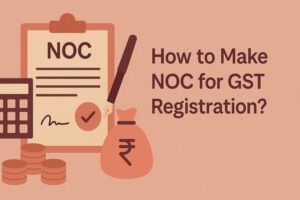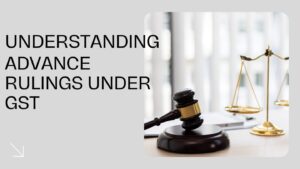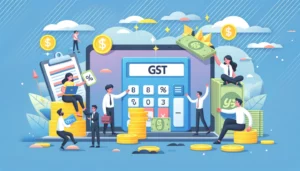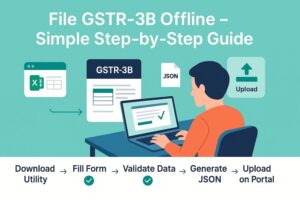What Are Non-GST Supplies Under the GST Framework?
- 16 Dec 24
- 10 mins
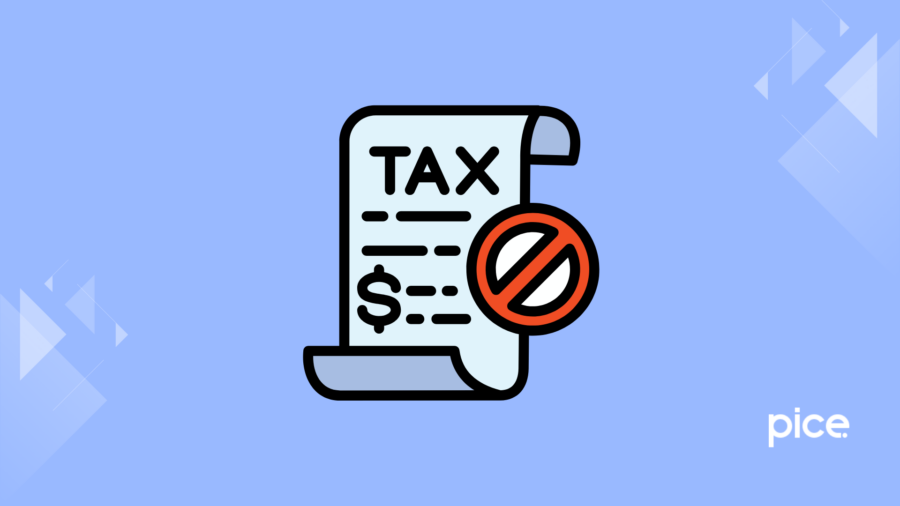
What Are Non-GST Supplies Under the GST Framework?
- Definition of Non-GST Supply
- Handling Non-taxable Supplies in GSTR-3B
- What Does Schedule III Mean in GST?
- Differences Between Nil-Rated, Exempt, Non-GST, and Schedule III Supplies
- Definition of Exempt Supply
- Managing Exempt Supplies in GSTR-3B
- Impact of Exempt and Non-GST Supplies on Credit of Inputs
- Other Categories of GST-Exempt Supplies
- Reasons for GST Exemptions
- The Bottom Line
Key Takeaways
- Non-GST supplies refer to items outside the GST scope, such as alcohol, petroleum products, and natural gas, which do not attract GST.
- Nil-rated supplies attract a 0% GST rate but do not allow Input Tax Credit (ITC) claims, unlike zero-rated supplies where ITC can be claimed.
- Exempt supplies include essential goods and services like fresh vegetables, healthcare, and education, which are excluded from GST but also disallow ITC.
- Schedule III supplies, such as funeral services and actionable claims, are classified as "neither goods nor services" and remain outside GST.
- Businesses must differentiate and report non-GST, exempt, and nil-rated supplies accurately in GSTR-3B and other GST forms to avoid compliance issues.
GST applies to the supply of goods and services that fall under the scope of the GST Law. Nevertheless, at times, certain transactions may not attract taxation. Thus, to determine the total tax liability precisely, one needs to identify non-GST supplies under GST regime. This category is further segmented into exempted, nil-rated and zero-rated supplies. To learn about the non-GST supplies in detail, we suggest you go through this guide.
Definition of Non-GST Supply
Non-GST supplies do not attract tax after the supplier sells them in the market. This is because these supplies are held ‘non-taxable supply’ under the GST law. Therefore, a registered person must not upload these supplies on the unified portal or mention them in GSTR-3B returns.
Additionally, no input tax credit can be claimed upon producing any kind of non-GST supplies. In India, some examples of non-taxable supplies include natural gas, alcohol for human consumption, aviation turbine fuel, diesel and petrol.
Handling Non-taxable Supplies in GSTR-3B
A registered person must feed in the non-GST supplies under GST in:
- Table 5F of GSTR-9
- Table 7-B of GSTR-9C
- Table 3.1(e) of GSTR-3B
- Column 4 of Table 8 in GSTR-1
Note: There’s no need to mention GST furnished on inputs for producing exempt items.
What Does Schedule III Mean in GST?
When the GST Council declares the tax rates for various supplies simultaneously, they state the entire list of exempted services and goods. Although most parts are covered, several activities, especially items, are not considered under the GST law. In simple words, these products are outside the scope of GST.
To some extent, the above-mentioned items were similar to the items in the negative list under the former regime. Now, these transactions are included in the Schedule III of the GST law. These are popularly mentioned as “Neither goods nor services”.
Section 7 under the CGST Act describes the concept of 'Supply' and comprises a subsection (3) where one can find references for Schedule III items.
💡 If you want to pay your GST with Credit Card, then download Pice Business Payment App. Pice is the one stop app for all paying all your business expenses.
Differences Between Nil-Rated, Exempt, Non-GST, and Schedule III Supplies
With the inception of the GST Act, the goods and services are classified into exempt, Schedule III, nil-rated and non-GST supplies under GST. Here, you may take a look at what actually differentiates the different forms of exemption.
| Comparison Parameters for Different Types of Exemption | Exempt Supplies | Non-GST Supplies | Nil-rated Supplies | Schedule III Supplies |
| Definition | These supplies fall under the ‘taxable’ category as per the GST norms but are explicitly exempted via notifications. | Non-GST supplies are constitutionally kept out of the purview of the GST realm. Thus, one cannot find their mention in the GST Act. | The rate of tax for these supplies is zero under the GST Act. | These items do not qualify as a ‘supply’ according to the definition laid out in the GST Act. Otherwise, normal tax rates would have been levied on them. |
| ITC Availability for a Business Entity | Not available | Not available | Available | Not available |
| Do the relevant services or products come under the scope of GST? | Yes | No | Yes | No |
| Examples | Unprocessed agricultural products like fresh fruits and vegetables, curd, bread, fresh milk, and other fresh produce. | Alcoholic liquor for human consumption, petroleum products, electricity transmission, natural gas, etc. | Essential food items like grains, jaggery, salt, cashew nuts, coffee beans, raw silk, organic manure, etc. | Here the list of supplies includes certain actionable claims, funeral or burial activities, etc. |
Definition of Exempt Supply
Exempted supplies in the tax structure include everyday items. As these commodities qualify as basic essentials, they do not attract any GST rates. If you own a business involving these products, you won't be eligible to claim an input tax credit against the purchase of raw materials that are used to produce the supplies.
Some examples of exempted supplies include:
- Basic food items like fresh and dry vegetables
- Labour supply for farms
- Sale of land
- Supply of precious metals
- Transactions involving medical devices
- Government services, etc.
Managing Exempt Supplies in GSTR-3B
Business owners should follow several prescribed steps to report exempt supplies in GSTR-3B. These include:
- Correct Classification: The accounting personnel in charge need to clearly understand what items or services qualify as exempt supplies. To find the complete list of tax-free supplies, you can head to the official website of the GST Council.
- Separate Record Maintenance: Preserving a dedicated record for exempt supplies under GST makes it simpler to file the ITR. Simultaneously, the business management must ensure that the exempt supplies do not get reflected in the aggregate turnover recorded in Table 3.1(a).
Impact of Exempt and Non-GST Supplies on Credit of Inputs
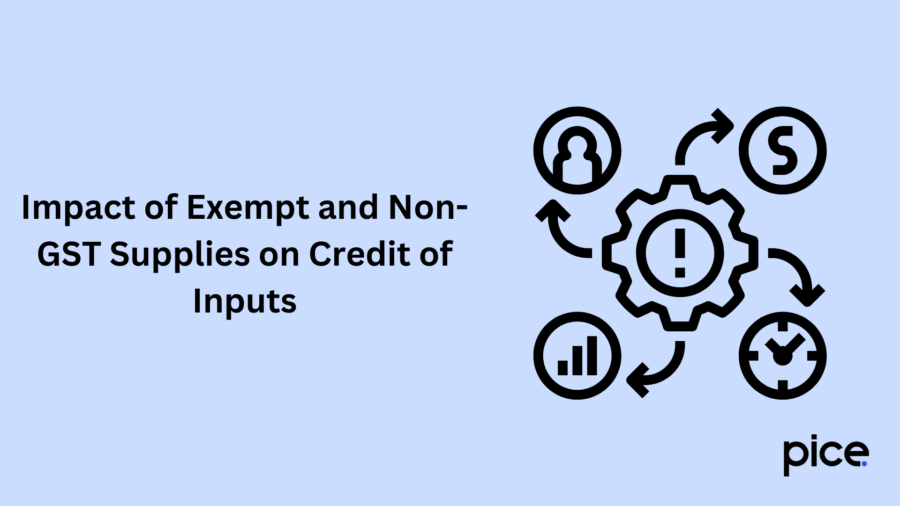
Businesses are instructed not to include the GST that has been furnished for inputs required to make exempt supplies. This is because such inputs are not to be considered for ITC credit.
However, business owners must keep separate records for the exempted and non-GST supplies under GST to precisely calculate the credit reversal amount. Failing to do this can attract unwanted penalties or interests moving forward.
Other Categories of GST-Exempt Supplies
Two additional categories of supplies that qualify for exemption under GST are zero-rated supplies and nil-rated supplies.
- Zero-rated Supplies
For these services and products, the rate of tax is ‘0’. Thus, the supplier of such commodities or services is not liable to pay Goods and Services Tax to either the State or Central Government. However, they are still eligible to claim ITC against the tax paid to procure raw materials.
Zero-rated supplies are generally supplies meant for exports and several other forms of supplies that do not fall within the scope of supply under GST. A popular example can be a supply made towards a group of international tourists or a supply targeted towards a Special Economic Zone (SEZ).
- Nil-rated Supplies
Like zero-rated supplies, here also the payment of taxes is zero. However, the supplier here cannot claim ITC for the vendor payments meant for the furtherance of their businesses.
‘Nil-rated’ supply is utilised for a particular segment of goods and services that are exempt as per the GST norms. Some nil-rated supplies comprise goods or services delivered to an unregistered person, supply of services or products related to agriculture, supplies made to individuals staying outside India, etc.
Reasons for GST Exemptions
Specific transactions in India involving certain services or products or both are exempt from GST. The Government doesn't levy tax on these supplies. The reasons behind this include long-drawn societal aims, administrative convenience and major socioeconomic concerns.
These are some typical parameters considered for granting exemptions from GST:
- Public Interest and Social Welfare
Under this head, the Government considers essential items and services that are deemed important for a better lifestyle. It covers daily food products (like milk, wheat, rice, etc.), along with educational and healthcare services.
- Small Businesses
Firms with a limited annual turnover can receive exemptions or certain rate concessions as the Government strives to reduce their tax burden. One such initiative is the Composition Scheme where particular businesses enjoy partial exemptions as they show valid reasons for turnover constraints.
- Interstate Supplies
A handful of mentioned items and services when supplied across state borders may be excluded from the GST regime or taxed at a low rate to encourage more of these transactions.
- Exports
Under the GST law, exports are typically marked as ‘zero-rated’ supplies. This infers that the related products and services draw a 0% tax rate. This initiative has been adopted to keep Indian businesses highly competitive in foreign markets by removing excess burden due to GST.
- Financial Services
Selected financial services like business loan interest, insurance and banking, can be left out of the scope of GST obligations if specific conditions are met.
- Agricultural Supplies
Most agricultural produce and services do not come under GST. These benefits are allowed to promote the growth of the agro-industry that significantly contributes to India's GDP.
- Government Services
Tax relations are provided for certain government functions or services offered by the local authorities to evade the chances of double taxation. It also helps simplify accounting.
- Administrative Ease
The GST taxation structure is quite complex. To make it a bit simpler, the GST Council exempts specific services and items. It makes it easier for businesses and registered taxpayers to comply with the GST norms and commence activities lawfully.
- Cultural and Religious Significance
The Government may consider exempting certain items for religious, cultural or philanthropic reasons to preserve social values and heritage.
- Transitional Provisions
When a business is transitioning and has recently completed their GST registration, some concessions may be given to mitigate the possible negative impacts of the new GST regime.
The Bottom Line
Non-GST supplies under GST are specific products and services for which normal GST rates do not apply. The list of exemptions including vital products and services can change from one region to another. This can also differ in various timeframes. The primary aim behind such efforts is to reduce the compliance burden on vital supplies or help certain industries. As a taxpayer, you should be aware of exemptions to execute accurate tax filing.
 By
By 






